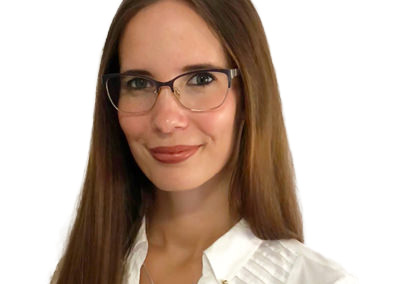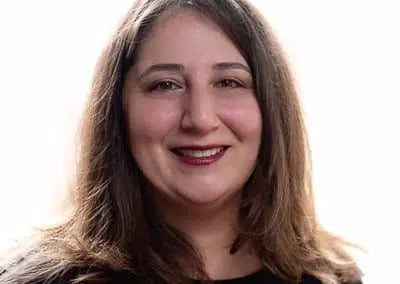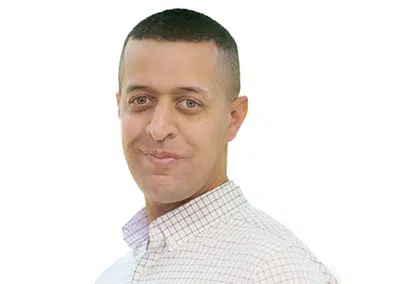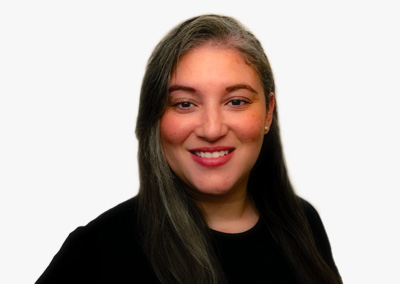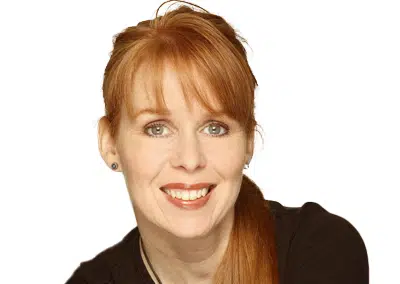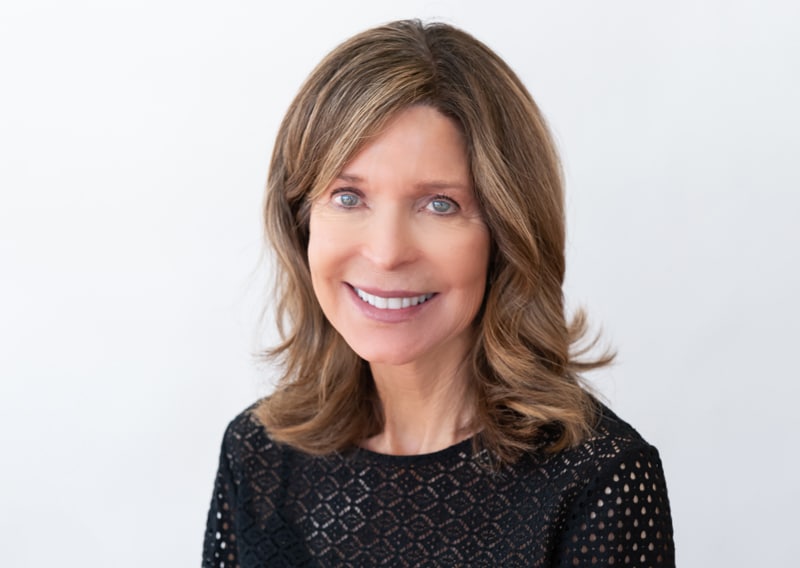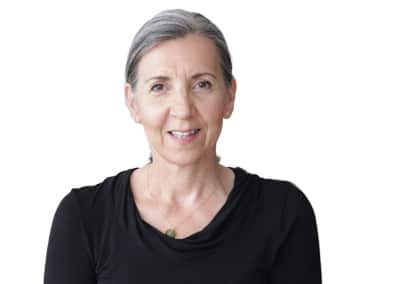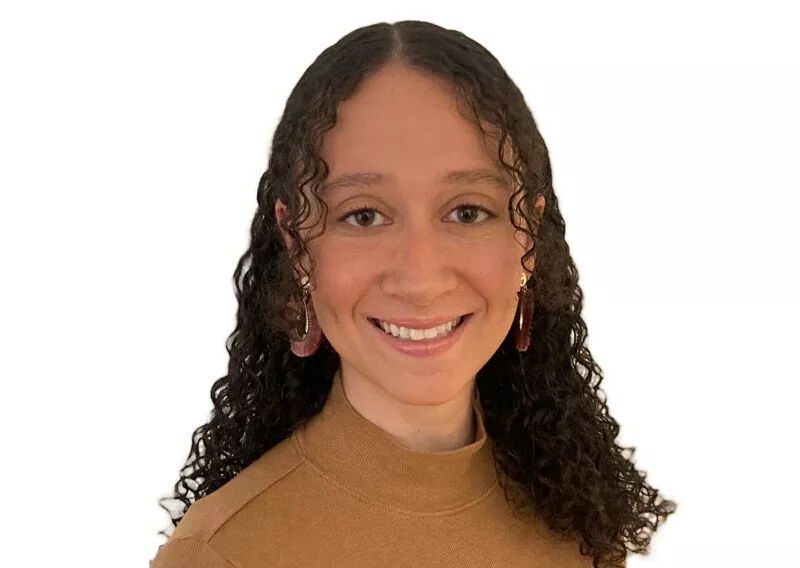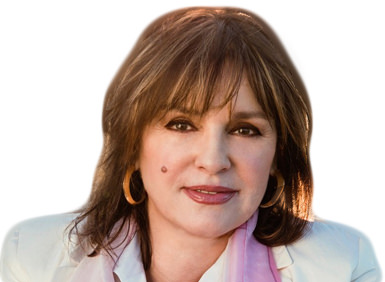Marriage Counseling Questions:
Relationship Coaching vs. Couples Therapy

Dr. Lisa Marie Bobby is a licensed psychologist, licensed marriage and family therapist, board-certified coach, AAMFT clinical supervisor, host of the Love, Happiness, and Success Podcast and founder of Growing Self.
Takeaways: Marriage counseling, couples therapy, and relationship coaching: The terms marriage counseling, couples therapy, and relationship coaching get tossed around all the time . They’re all processes for helping couples make positive changes in their relationships, but the way they work can be very different. Learn about relationship coaching versus couples therapy and which approach is right for you!
- Differences between therapy and coaching
- The goals of therapy vs. the goals of coaching
- What is a marriage counselor or couples therapist?
- What is a relationship coach?
- The mental health component
- Couples therapy vs. relationship coaching: Which is right for you?
As seasoned family therapists will tell you, “All roads lead to Rome.” This means that there are many effective ways to help couples heal and grow. It’s true. However, there are some significant differences that you’ll experience if you’re working with a traditionally trained Denver marriage counselor or couples therapist, versus a relationship coach who incorporates evidence-based relationship coaching strategies into their practice.
The Difference Between Therapy and Coaching
The first thing to understand is the general difference between therapy and coaching. This understanding provides an intellectual framework for understanding the differences between couples therapy and relationship coaching.
Therapy: In its pure form, psychotherapy or “therapy” is behavioral healthcare.
Psychotherapy is a system for diagnosing and treating mental health conditions that requires formal education and licensure to practice ethically. Psychotherapy is healthcare and therapy is often happening from the perspective of the medical model: The basic premise of a therapist is that you require “treatment” for symptom reduction and therapy exists for the purpose of resolving symptoms. Therapy is also appropriate for people dealing with more serious issues, big feelings, or who are in need of a gentle, insight-oriented, and supportive healing process. The intention of therapy is to help you heal.
Coaching: In contrast to therapy, coaching is for the purposes of personal growth, attaining important goals, and getting better results in different areas of your life. The assumption of coaching is that you are not “disordered” – but rather a healthy person seeking to develop yourself, improve your relationship, and/or grow professionally. Coaching is not healthcare. Coaching is appropriate when your hope is to learn about yourself and get assistance in creating a plan of action that will help you achieve a desired outcome. Coaching is for growth, and goal achievement.
Therapy is behavioral healthcare.
It is important to know that coaching is an unregulated profession. While you can become “certified” as a coach, there is no regulatory agency monitoring coaches, and there is no licensure required to be a coach. The lack of regulation surrounding coaching means that literally anyone can call themselves a coach without any formal education or training.
My general advice to anyone interested in coaching – be it life coaching, career coaching or relationship coaching – is to find a coach who has become a qualified therapist and then pursued post-graduate training as a coach. This way, you can have more confidence in their ability to effectively help you.
Learn more about how to find a good therapist (and avoid an unqualified life coach) here.
Similarities Between Therapy and Coaching
Therapy and coaching can have many similarities. You can get involved in “therapy for personal growth” rather than therapy that’s focused on mental health issues. This approach to therapy can help you develop self-awareness and new ways of being that help you get better results and attain your goals – like coaching does.
Similarly, a competent coach will always start the coaching process by helping you generate new understanding, self-awareness, and insight in order to get clarity about who you are and what you want. Coaching uncovers your strengths and growth opportunities, and then helps you translate those new ideas into actions that create different results.
Therapy and Coaching Have Different Goals
Despite the similarities that therapy and coaching may share, the goals of these two different approaches are quite different.
The expectation of coaching is that – sooner or later – you’re going to take action.
Many types of therapists (without coaching backgrounds) may, by default, be practicing from the basic premise that there is something “wrong with you” that therapy needs to resolve. They believe they are there to help you “heal” rather than help you evolve. This can feel disempowering and unhelpful for many people who seek a more positive, strengths-based approach.
Additionally, many therapists are trained to provide introspective, insight-oriented “talk therapy” that allows you to talk through your feelings, understand yourself differently, and gain new insight… but is not attached to specific goals. While this type of therapy can be very helpful if you’re dealing with extremely difficult life events and just need time and space to talk about what you’re feeling, it can feel limiting if your hope is to change your circumstances (rather than continue to talk about how you feel about them).
A traditionally trained therapist is taught to help you achieve insight and make internal connections which is not the same thing as making actual changes in your day-to-day life. Many people seeking change in therapy report feeling like “therapy doesn’t work” because they continue to feel stuck and like they’re not making progress. Often, they’re not.
Attaining insight is not the same thing as creating change. If your hope is to make actual changes in your life, coaching may be more useful than therapy.
Like therapy, the process of life coaching starts with insight and achieving understanding. However, the expectation in coaching is that — sooner or later — you’re going to take action to implement the new ideas. A coach will help you create an action plan that outlines where you are currently, where you want to go, the obstacles you’ll need to overcome, the stages along the way (so you can track your progress), and then the actual steps you’ll need to take to get there.
The Goals of Therapy vs. The Goals of Coaching
The goal of a good coach is to help you take action and get real-world results.
A growth-oriented therapist, even a good one, will feel their work is done when you understand why you are the way you are and have developed compassion for yourself – even if nothing has changed. The goal of talk therapy is insight.
A mental health therapist is there to help you reduce the symptoms of your mental illness and restore your functioning so that you can get back to baseline and feel okay again.
For more on this subject, check out Counseling vs Coaching.
Now, with the basic differences between therapy and coaching in mind, let’s discuss the differences between couples therapy and relationship coaching.
Or, if you’ve heard enough from me and would like to begin coaching or therapy with one of the coaching therapists on our team, you’re invited to schedule a first free consultation session to get the ball rolling.
Time to Grow?
Start the conversation.
Schedule Your Free Consultation.
What is a Marriage Counselor or Couples Therapist?
An authentic Denver marriage counselor or online marriage counselor has extensive, specialized education, training, and experience in couples and family therapy. There is a lot of hard work involved in becoming a marriage counselor – including obtaining a graduate degree in couples and family therapy, thousands of hours of supervised experience, a national exam, and post-graduate training in evidence-based forms of couples counseling. It’s important to know how to find an authentic couples therapist.
Unfortunately, most therapists offering marriage counseling or couples therapy (or discernment counseling) do not have specialized training or education in couples and family therapy. They are trained as individual therapists and may have had one graduate level class in family therapy. They do not practice evidence-based forms of couples counseling and often do not practice from a systemic perspective at all.
Because they are individual therapists attempting to provide couples therapy without having had specialized training in how to do couples therapy, the experience is nothing like the coherent, effective system of creating change in a couple that a Licensed Marriage and Family Therapist (MFT) would use. Individually trained therapists use therapeutic approaches and interventions intended for helping individuals (except with two people in the room) because that is what they know how to do.
Couples seeking help from individual therapists unqualified to provide couples counseling often feel that “marriage counseling doesn’t work.” (But they weren’t really in marriage counseling!)
Quick rule of thumb: Only a Licensed Marriage and Family Therapist (or MFT) will have specialized training in couples and family therapy. Other types of mental health counselors (licensed psychologists, licensed clinical social workers, and licensed professional counselors) usually won’t.
Much more information on the subject of how to find a good marriage counselor here.
LMFT Marriage Counselors Are Therapists
Another important thing to know is that – in addition to having extensive specialization in couples counseling for the purpose of relationship improvement – a licensed marriage and family therapist will also be able to serve as a mental health clinician and treat psychiatric diagnoses through both individual therapy and family therapy.
Through the process of becoming a licensed marriage and family therapist, clinicians learn how to serve as general practitioner psychotherapists (albeit, usually with a systemic perspective) as well as couples and family specialists. Becoming a LMFT is somewhat similar to the process of becoming a specialized physician who has basic knowledge as a general practitioner and then spends additional time learning how to become a cardiologist or a podiatrist.
However, not everything a LMFT does is in the realm of “psychotherapy for the purpose of mental health treatment.” In fact, only individual therapy or family therapy are considered to be “behavioral healthcare.” Individual therapy is focused on treatment of a mental illness in an individual and family therapy is focused on the treatment of the mental illness of the “identified patient” through improving the functioning of the family system.
Since the type of therapy that marriage and family therapists provide is considered medically necessary healthcare, “marriage and family therapist” is a regulated professional credential and state licensure is required to provide this treatment. Medically necessary treatment provided by LMFTs is also covered by health insurance.
In contrast, there is no such thing as “medically necessary marriage counseling” or “medically necessary couples therapy.” Neither marriage counseling nor couples therapy for the purpose of relationship improvement are considered healthcare. That’s why you can’t use health insurance for couples therapy or marriage counseling; neither of them are considered to be forms of “treatment” in the eyes of insurance companies.
If you have used insurance for relationship improvement focused couples therapy before, it meant that your couples counselor was coding your sessions as “family therapy” and had identified one of you with a psychiatric diagnosis that the family therapy was intended to treat. If they weren’t having overt conversations with you about diagnoses and treatment, but were simply helping you improve communication, etc, it means that they were misrepresenting what they were actually doing to your insurance company. (Ethical marriage counselors don’t do this.)
What is a Relationship Coach?
A relationship coach, just like a life coach, can be literally anyone. You do not need any formal education, training, or professional credentials to call yourself a relationship coach and start seeing clients. (Scary but true).
To be honest, I am extremely concerned whenever I see a self-anointed “relationship coach” with slick branding but no professional credentials touting their services through social media. I would strongly recommend that you avoid attempting “relationship coaching” with anyone besides a marriage and family therapist who provides relationship coaching.
I’m pretty down on individual therapists or social workers who offer “couples counseling” without specialized education or training, but at least they have graduate degrees and formal training in counseling. A free-range “relationship coach” may or may not have attended a weekend seminar or even read a book about couples therapy techniques.
I’m sure that most relationship coaches mean well, but couples therapy and relationship coaching can be complex and often challenging for marriage and family therapists who are both highly educated and experienced. Unqualified relationship coaches are neither.
Yet, at the same time, when working with a skilled provider who has a deep understanding of evidence based forms of couples counseling, a relationship coaching approach can be a more effective way for people not struggling with mental health issues to create positive day-to-day changes in a relationship.
Find a Qualified Relationship Coach
They key to getting excellent relationship coaching is to work with a qualified relationship coach. Effective, genuinely helpful relationship coaching is typically provided by a licensed marriage and family therapist who has incorporated relationship coaching techniques into their practice. They bring everything they’ve learned about how to help couples improve their relationships and then utilize evidence-based couples therapy strategies in a coaching model that emphasizes positive change rather than insight or “treatment.”
Let’s Talk.
Schedule a Free Consultation Today.
Similarities of Couples Therapy & Relationship Coaching
Now that we’ve discussed the differences between the professional qualifications of a marriage counselor vs. a relationship coach, let’s talk about the similarities and differences of couples therapy and relationship coaching.
Really good marriage counseling or couples therapy for the purpose of relationship improvement is always (in my opinion) going to be “coachy” in nature. Sooner or later – your marriage counselor will assist you in translating the things you’re talking about in your sessions into concrete positive changes in your day to day interactions.
Effective marriage counseling, couples therapy, long-distance relationship counseling, and relationship coaching for the purpose of relationship improvement all follow the same broad process: All good relationship growth work begins with an assessment to uncover your relationship’s strengths and growth opportunities. Then, a competent couples counselor and relationship coach will help you and your partner understand yourselves and each other in new ways that illuminate the path forward.
Once you identify “the problems” and create understanding experientially, you’ll work with a couples therapist or relationship coach to develop the new ideas, skills, improved communication, and ways of relating that help you feel more loved and connected.
In this way, competent couples therapy and relationship coaching are extremely similar.
The Difference Between Relationship Coaching and Marriage Counseling: Mental Health
The biggest difference between relationship coaching and couples therapy is that a relationship coach would solely focus on helping you improve your relationship and attain your relationship goals; coaches do not focus on your mental health.
Since relationship coaching is not “healthcare,” a relationship coach is not required to be licensed to practice psychotherapy in your state. However, an informed, ethical and competent MFT relationship coach (with a background in mental healthcare) would also be monitoring whether your relationship problems are due to the presence of mental illness in either you or your partner.
If your MFT relationship coach determines that you or your partner meet criteria for a psychiatric diagnosis that is interfering with your ability to benefit from relationship coaching, they will recommend that you seek either individual psychotherapy or family therapy until your symptoms have resolved. Only then will “relationship coaching” work be effective.
If you are working with a marriage and family therapist in Denver, or an online therapist who is licensed to provide mental health services in your state, you may be able to shift from a “relationship coaching” modality to family therapy (aka, “couples therapy”) with you and your partner for the purpose of treatment.
If your relationship coach MFT is not licensed to practice psychotherapy or family therapy in your state, they will help you connect with a licensed in-state clinician who can provide therapy services to you.
Treatment-focused therapy can occur in conjunction with skills-based relationship coaching (provided the boundaries between therapist and coach are clear). Or, if the symptoms are active to the degree that they are impairing the success of coaching, it is best to pause relationship coaching until symptoms are resolved.
Therapy is Mental Health Treatment
If you believe that there are underlying mental health issues at the root of your relationship problems, it would be best to seek a state-licensed marriage counselor for therapy from the start rather than pursue coaching.
Working with a competent, licensed marriage and family therapist for therapy can help enormously if one (or both) of you is dealing with historical trauma, an unresolved mental health condition such as depression or ADHD, or a substance use disorder. In these cases, effective couples therapy (i.e., family therapy) can be very effective in resolving these symptoms. Doing this type of therapy together can be especially powerful and meaningful because it helps you both learn how to cope with these issues, and – even more importantly — support each other through them.
It’s important to know that unresolved mental health issues can often create significant relationship problems and contribute to unhealthy relationship dynamics. For example, trauma related to childhood sexual abuse or past domestic violence can often create fear, mistrust, and difficulty in connecting with a partner.
Common mental health conditions such as major depressive disorder or generalized anxiety disorder can change the way you “show up” in a relationship, leading to withdrawal, irritability, and avoidant or controlling behaviors. And certainly, a couple where one partner is recovering from a substance use disorder will often have a great deal of work ahead of them to work through anger and restore trust.
In these situations, it is important to seek out family therapy. You can call it “couples therapy” or “marriage counseling” but it’s still the same: Effective therapy for the purpose of achieving mental and emotional wellness that you and your partner do together.
If you’re in a situation like this, I would encourage you to seek help from a licensed marriage and family therapist. While an individually-trained therapist may take the view that this is one person’s “problem,” a good family therapist will take the view that this diagnosis is impacting both of you and is your shared problem. If you’ve been married for more than 10 minutes to a deeply depressed or traumatized person, I know you’d agree that it impacts your life too.
Doing family therapy together can help your loved one – and you too.
Relationship Coaching is For Relationship Improvement
However, if your goal is to make a relationship work, resolve old issues, improve sexual intimacy, reduce conflict, increase connection, have better communication, get on the same page around parenting or finances, create alignment around your hopes and goals, and grow together – without the presence of mental health symptoms – your needs would likely be better met through a positive, strengths-based relationship coaching approach rather than a “therapeutic one.”
While it can be important to honor where each of you came from in terms of the family of origin and life experiences that shaped you (in order to foster empathy and understanding, and to see how it’s showing up in your parenting and family today). I don’t think it’s very helpful for most couples to get overly focused on “why you are the way you are” if the intention is to create change.
For example: Yes, maybe you are a little avoidant in your relationship because your dad was emotionally unavailable – but what do you do with that information? A therapist-y therapist would spend a lot of time spelunking around in that emotional legacy.
In contrast: A relationship coach would focus on helping you learn what being emotionally responsive involves and why it matters, then assist you in practicing how to be that way with your partner — not spending eight sessions talking about your feelings towards your dad.
From my perspective as a relationship coach, I believe that couples make much more progress and create more change when they are assisted in focusing on the present and the future rather than the past. I will make one notable exception, however. Couples healing their relationship after an affair or other regrettable incidents really do have to go back in order to move forward. Otherwise, it’s much more productive to attach new insights into specific, positive behaviors.
A good relationship coach will help you understand each other and yourselves in a new way, create clear and meaningful relationship goals, and then help you create a plan of action that leads to real and lasting change in your day-to-day partnership. They’ll incorporate evidence-based couples therapy modalities to help you achieve your goals, but without the emphasis on mental illness, historical influences, and psychopathology that can often bog down therapy.
Family Therapy or Relationship Coaching: Which is Right For You?
People seeking to make positive changes often feel frustrated by insight-oriented couples therapy, or mental health-focused family therapy. It feels slow, stuck in the past, and is not always helpful in creating change. Engaging in an empowering coaching model that provides clear direction and guidance for how to move forward and grow together feels much more productive for them.
Similarly, couples who attempt relationship coaching when they really require therapy will not be able to benefit from coaching until their symptoms have resolved. In these cases, coaching will feel like too much too fast – and like your coach is encouraging you to do things that feel genuinely out of reach for you.
For example: If you or your partner are in the midst of a crippling depressive episode, being consumed by anxiety, tortured by intrusive thoughts and fears due to historical trauma, or trapped in an addiction, you need to become well before you can climb the mountain of growth. Evidence-based couples and family therapy can help you feel good again and restore your functioning so that you become able to take the action that will ultimately propel your relationship forward.
I hope this discussion of the differences between couples therapy and relationship coaching helped you determine which path is right for you.
Sincerely,

Dr. Lisa Marie Bobby is a licensed psychologist, licensed marriage and family therapist, board-certified coach, AAMFT clinical supervisor, host of the Love, Happiness, and Success Podcast and founder of Growing Self.
Meet a Few of Our Relationship Coaches
Marriage Counseling Questions | Couples Therapy Questions
If you’re considering getting involved in marriage counseling, couples therapy, or relationship coaching you probably have questions! Get your marriage counseling questions answered, right here.
Relationship Advice
Our relationship experts have tons of free, helpful relationship advice on numerous topics to support you both on your journey of growth together. View our relationship advice.
How Healthy Is Your Relationship?
Take our free relationship quiz to discover your strengths and growth opportunities, and get expert recommendations.
When To Get Marriage Counseling?
Was that just a yucky fight? Or is your relationship really in trouble? Here’s how to tell when to get marriage counseling.
What To Expect From Marriage Counseling
Learn what to expect from marriage counseling, from your first free consultation to the triumphant “graduation” from couples therapy.
Relationship Coaching vs. Couples Therapy
What’s the difference between relationship coaching vs couples therapy? Learn about both approaches, and which is right for you.
How to Find a Marriage Counselor
Not all marriage counselors are the same. Getting involved with a bad one can be a disaster. Here’s how to find a good marriage counselor…
Pre Marriage Counseling
Couples counseling before marriage is not the same thing as premarital counseling. Many couples need to grow together before they can move forward.
How Long Does Marriage Counseling Take?
You shouldn’t be in marriage counseling for years. Learn the average length of marriage counseling, depending on your situation, and your relationship goals.
How Marriage Counseling Works
Marriage counseling works, but how? Learn how marriage counseling works, and how the process can help you grow, together.
Does Couples Therapy Work?
Couples who successfully work through rough patches come out stronger than ever before. If you’re wondering, “Does couples therapy work?” read this article for the inside scoop.
Can We Do Marriage Counseling Online?
Online marriage counseling can be incredibly convenient and effective — but not always. Learn when online marriage counseling is the best bet, and when it’s a bad idea…
Can You Do Long-Distance Couples Therapy?
Yes, we provide long-distance couples counseling from all over the world through secure, easy, three-way online video.
Does Insurance Cover Marriage Counseling?
Insurance can pay for marriage counseling (aka, family therapy), but only sometimes. Learn when insurance covers marriage counseling, and when it won’t.
How Much is Marriage Counseling?
Getting expert help for your marriage can be the best, most life-changing decision you ever make. How much do couples therapy and marriage counseling cost? Get all the details, here.
Gift Relationship Help
If you have a loved one who is struggling in their relationship, you can help them get help by “gifting” couples counseling or coaching. Here’s how…
Discernment Counseling For Couples
Before marriage counseling can work, both partners need to want it to work. Discernment counseling helps you resolve ambivalence, and get clarity.
Why Evidence-Based Therapy Matters
Marriage counseling can be a huge waste of time if your counselor doesn’t practice evidence-based approaches to marriage counseling. Here’s why…
Online Couples Therapy
We offer Denver couples therapy and Denver marriage counseling as well as online couples therapy. Learn about our online couples therapy services.
Our Relationship Services
We offer premarital counseling, sex therapy, perinatal counseling, parent coaching, affair recovery, blended family counseling, financial therapy for couples, and more. Learn about all our couples counseling services.
Meet our Relationship Experts
Growing Self relationship experts are marriage and family therapists with specialized training and experience in effective, evidence-based approaches to help couples grow, together. Meet our team of relationship experts…
The Best Marriage Counseling
Curious to hear what others have to say about their experience with “the best marriage counselor?” Read their stories…
Free Resources, For You.
Our experts are incredibly generous and have put together an entire library of free resources and actionable advice to support you on your quest for Love, Happiness, and Success. View our blog + podcast.
More Questions? Let’s Talk.
We’re available by phone, email, and chat, and happy to answer any of your questions personally. Get in touch, anytime.
Start Couples Counseling or Coaching
Ready to begin marriage counseling, couples therapy, or relationship coaching with Growing Self? Start by scheduling a free consultation meeting with the expert of your choice.




